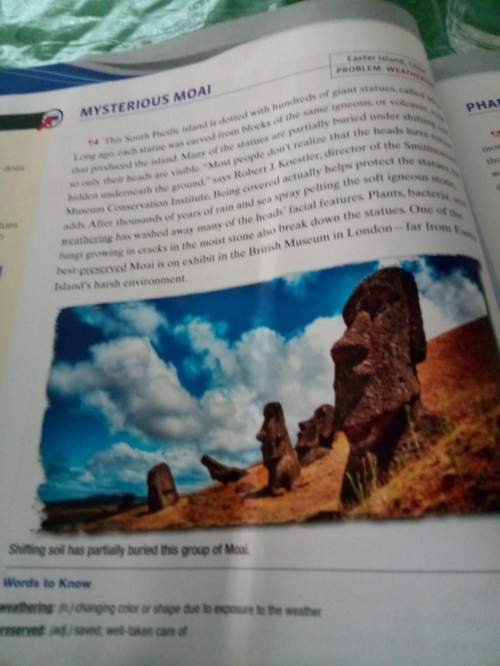
English, 02.10.2019 06:30, deadman76751
In this excerpt from phillip freneau's poem “american liberty,” the speaker describes being “slaves and minions to a parliament.” what is the intended meaning of this hyperbole?
and should we now when spread thro' ev'ry shore,
submit to that our fathers shunn'd before?
should we, just heaven, our blood and labour spent,
be slaves and minions to a parliament?
perish the thought, nor may one wretch remain,
who dares not fight and in our cause be slain;
the speaker feels that the colonists should pay their share of taxes.
the speaker believes that the british government is broken and should be fixed.
the speaker thinks that the colonists are being unfairly treated by the british government.
the speaker intends to lead a slave revolt against the british government.
nextreset

Answers: 1
Other questions on the subject: English

English, 21.06.2019 16:00, kylabreanne120
Read the excerpt. while i am i, and you are you, so long as the world contains us both, me the loving and you the loth, while the one eludes, must the other pursue. what do these lines, from “life in a love” by robert browning, convey about the speaker’s pursuit of his beloved? eventually, they will switch roles, and she will chase him. he will try to win her love for as long as they are both alive. if they lived in a different time and place, he would not love her. they are meant for each other, and he is certain that they will be together.
Answers: 1

English, 22.06.2019 04:30, pcastaneda03
The process in which applications are reviewed based on academic performance completion of rigorous course work and extracurricular activities is called
Answers: 1

English, 22.06.2019 04:50, ilawil6545
Read the passage, then answer the question that follows. no one could have seen it at the time, but the invention of beet sugar was not just a challenge to cane. it was a hint—just a glimpse, like a twist that comes about two thirds of the way through a movie—that the end of the age of sugar was in sight. for beet sugar showed that in order to create that perfect sweetness you did not need slaves, you did not need plantations, in fact you did not even need cane. beet sugar was a foreshadowing of what we have today: the age of science, in which sweetness is a product of chemistry, not whips. in 1854 only 11 percent of world sugar production came from beets. by 1899 the percentage had risen to about 65 percent. and beet sugar was just the first challenge to cane. by 1879 chemists discovered saccharine—a laboratory-created substance that is several hundred times sweeter than natural sugar. today the sweeteners used in the foods you eat may come from corn (high-fructose corn syrup), from fruit (fructose), or directly from the lab (for example, aspartame, invented in 1965, or sucralose—splenda—created in 1976). brazil is the land that imported more africans than any other to work on sugar plantations, and in brazil the soil is still perfect for sugar. cane grows in brazil today, but not always for sugar. instead, cane is often used to create ethanol, much as corn farmers in america now convert their harvest into fuel. –sugar changed the world, marc aronson and marina budhos how does this passage support the claim that sugar was tied to the struggle for freedom? it shows that the invention of beet sugar created competition for cane sugar. it shows that technology had a role in changing how we sweeten our foods. it shows that the beet sugar trade provided jobs for formerly enslaved workers. it shows that sweeteners did not need to be the product of sugar plantations and slavery.
Answers: 1

English, 22.06.2019 11:00, asiaosterling
Title the ramayana introduction hook (first sentence that captures the reader): connection/transition to thesis (brief summary of stories): thesis statement the ramayana the author uses indirect and direct characterization to depit the character sita as being beautiful, emotional, and quick to do things without thinking. : body paragraph 1 topic sentence (summary of paragraph): quote (don’t forget in-text citation): explanation of quote (connect it to thesis): end sentence to wrap up idea: body paragraph 2 topic sentence (summary of paragraph): quote (don’t forget in-text citation): explanation of quote (connect it to thesis): end sentence to wrap up idea: body paragraph 3 topic sentence (summary of paragraph): quote (don’t forget in-text citation): explanation of quote (connect it to thesis): end sentence to wrap up idea: conclusion reword thesis statement (not exact wording): summarize main idea (two-ish sentences summing up your topic sentence points): final thought (leave your reader with a big idea to take away): works cited last name, first name. "title of story." title of collection, edited by editor's name(s), publisher, year, page range of entry.
Answers: 1
Do you know the correct answer?
In this excerpt from phillip freneau's poem “american liberty,” the speaker describes being “slaves...
Questions in other subjects:


Mathematics, 08.12.2021 01:30

Mathematics, 08.12.2021 01:30


Mathematics, 08.12.2021 01:30


Mathematics, 08.12.2021 01:30



Mathematics, 08.12.2021 01:30







